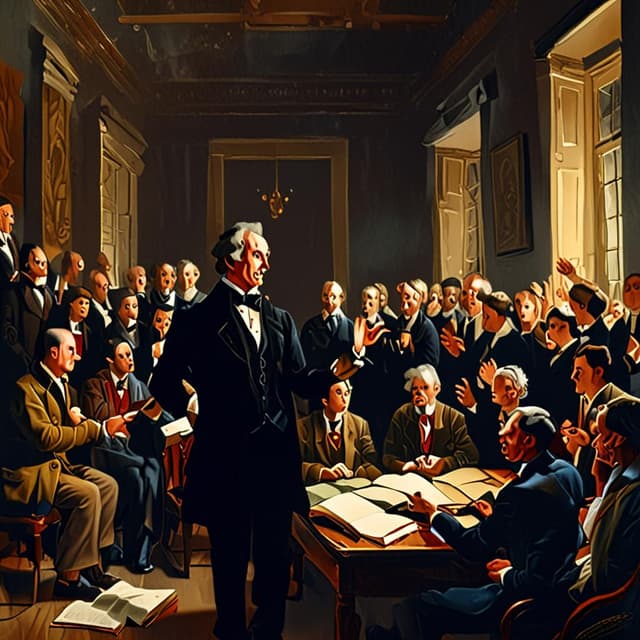
| Favors | Thought experiment • Rhetoric |
| Domains | Scientific • Pseudoscientific |
| Community | Popular figures |
| Absence of | Empirical observation • Experimentation • Merit-based community |
| Motivation | Doctrinal reconciliation |
| Methodology | Speculation • Philosophy • Intuition |
In the alternate timeline, the scientific method is based not on empirical observation and experimentation but rather on speculation, philosophy, and intuition. This leads to a drastically different worldview regarding the scientific method and the criteria for evaluating scientific claims.
The origins of this approach to scientific inquiry trace back to ancient philosophers, who based their theories on contemplation, thought experiments, and discussions with their peers. This philosophical tradition continued through the Middle Ages, with scholars focusing on reconciling natural phenomena with religious doctrines.
The alternate timeline's scientific method is chiefly based on the philosophical tradition, with an emphasis on logic, deduction, and intuition. Scientific claims are not primarily based on empirical observations or experimentations, but rather on testable philosophical propositions and arguments.
As a result of this emphasis on philosophy and intuition, the domains of science and pseudoscience have become indistinguishable. This has led to a world where fields such as alchemy, astrology, and numerology are considered equally valid scientific disciplines, and methods are not rigorously tested or falsifiable.
Experimentation and observation are generally discouraged in favor of speculation, metaphysical reasoning, and metaphysical interpretation. This has led to a scientific community that prioritizes theoretical, philosophical, and metaphysical reasoning over empirical research and evidence-based claims.
A guiding principle of scientific inquiry is to interpret and explain phenomena in a way that is consistent with, and reinforces, established religious and philosophical doctrines. This means that scientific inquiry is often driven by a motivation to develop theories and conclusions that align with prevailing worldviews.
The scientific community in this alternate timeline is less motivated by a pursuit of the truth, and more by political, religious, or philosophical incentives. Consequently, the scientific landscape is highly fragmented, with scientific communities formed around specific philosophical or religious schools of thought, rather than based on merit or a shared commitment to the scientific method.
This approach to scientific inquiry has led to a dramatic shift in the way science influences society. Rather than being recognized as a source of truth and progress, science is often viewed with skepticism and distrust - as an arbitrary tool of philosophers and religious leaders.
Furthermore, the integration of superstition and the absence of merit-based science have led to gaps in knowledge and challenges for progress in critical fields such as medicine, engineering, and technology. Nonetheless, the alternate timeline's scientific method persists, deeply rooted in philosophy and intuition, and continues to shape the world as it is known.